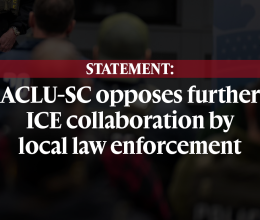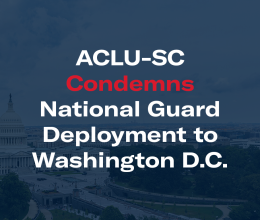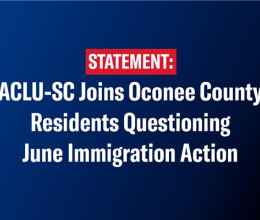
“Both sides of the immigration debate claimed victory on Monday, June 26, finding something to celebrate in the decision.”
July 5, 2012. The State. The Supreme Court ruling on S.B. 1070 is a strong rebuke to Arizona lawmakers who involved their state in immigration enforcement. It is also a warning to other state legislators who are considering passing similar legislation. Striking down three of the four provisions considered in Arizona v. United States, the justices affirmed the federal government’s exclusive role in enforcing immigration law.
But the court’s decision to allow the controversial “show me your papers” provision puts communities at risk of widespread discrimination. The court indicated that it is too early to tell if the discriminatory provision is unconstitutional, but there is no doubt that, in effect, it will lead to racial profiling, undermining our most basic constitutional protections of equal protection under the law. Look at what we’ve seen in Alabama.
In order to claim victory for the Constitution and its guarantee of due process and equal protection for “all persons” in America, we need immediate and strong action to prevent racial profiling. We will continue to challenge South Carolina’s copycat immigration law, Act 69, in the courts, and we will fight any future attempts by S.C. lawmakers to pass additional unconstitutional measures that unfairly discriminate against immigrants.
We urge the Department of Homeland Security to terminate all immigration enforcement cooperation programs that involve state and local police departments, including four “287(g)” agreements in South Carolina that delegate immigration agent authority to state and local police. These programs partnering state and local police with federal immigration authorities invite racial profiling and discourage victims and witnesses of crime from calling the police for fear of immigration consequences.
We call on Congress to pass the End Racial Profiling Act, which makes it unlawful under federal law for state and local law enforcement to profile based on race, religion, ethnicity or national origin. Finally, we urge Congress and the executive branch to craft an immigration policy that reflects true core American values and respects the Constitution. That would be a victory that all sides can celebrate.
Victoria Middleton
Executive Director
ACLU of South Carolina







